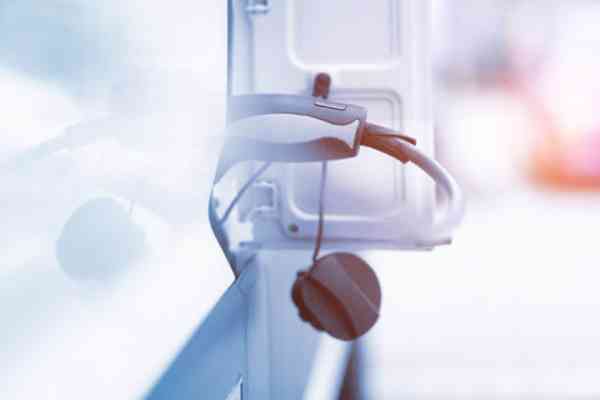VOLKSWAGEN AG VZO O.N.
Commented by Nico Popp on January 19th, 2022 | 10:59 CET
NEL, dynaCERT, Volkswagen: Will the last be first?
Energy prices are going through the roof. Anyone who has to change their energy supplier these days is in for a surprise. Surcharges of 50% and more for electricity and gas are not uncommon. In this context, questions about the drives of the future are becoming louder again. Although hydrogen also has a high energy requirement, the German Federal Ministry of Economics and Technology promotes green hydrogen as a lower levy under the Renewable Energy Sources Act. Reason enough to take a closer look at some stocks related to hydrogen and mobility.
ReadCommented by Nico Popp on January 12th, 2022 | 10:36 CET
BYD, Altech Advanced Materials, Volkswagen: Who is as innovative as Tesla?
For years, e-cars lagged behind conventional drives in many areas: The ranges were significantly lower, and comfort remained inferior to classic combustion engines. In the meantime, however, things have changed. Chinese manufacturers, in particular, are scoring points with ranges of 1,000 km. Modern e-cars have also long been packed with gadgets that make the hearts of tech-savvy car enthusiasts beat faster. Does this mean that the development of e-cars is at an end? Not at all! We present three companies from the industry and analyze their innovative strength.
ReadCommented by Nico Popp on December 9th, 2021 | 05:01 CET
Rock Tech Lithium, Noram Lithium, Volkswagen: The highflyers of tomorrow
Today, batteries for electric cars are still primarily imported from Asia. But soon, most batteries manufactured in Germany should also come from Germany. A number of factories are already under construction in Salzgitter, Göttingen, Erfurt, Kaiserslautern and Grünheide. All these production sites are united by the need for lithium. No wonder that this critical element is becoming increasingly expensive. Shares in lithium companies, therefore, offer opportunities.
ReadCommented by Stefan Feulner on December 6th, 2021 | 11:41 CET
NIO, Nevada Copper, Volkswagen - Business is booming
It is hard to imagine climate change without electromobility. The shift from combustion engines to battery-powered vehicles promises bright growth prospects for the automotive lobby. Despite the rosy outlook, a problem is emerging, one that has been known for years and is likely to become even greater in the future - the shortage of raw materials. Above all, the sharp rise in prices for essential metals is expected to eat into the margins of the automotive industry.
ReadCommented by Nico Popp on November 15th, 2021 | 13:11 CET
Volkswagen, Graphano Energy, Varta: Graphite as the new e-car hype?
The mobility revolution is turning the economy upside down. Where steel and components for classic transmissions once dominated, the future raw materials, such as lithium, rare earths and graphite, are now being used. We highlight the tidal shift in the automotive industry and present companies that could benefit from it.
ReadCommented by Carsten Mainitz on November 9th, 2021 | 11:14 CET
Covestro, First Hydrogen, Volkswagen - Win with hydrogen!
The UN Climate Change Conference COP26 is in Glasgow until November 12 and is crucial for political climate protection measures in the coming years. The targets have already been put down on paper in black and white. Net Zero Emissions are to be achieved by the middle of the century. Fuel cell and hydrogen drives are essential prerequisites for achieving this Net Zero vision. Various companies have interesting opportunities to enter the market in the context of strategic alliances.
ReadCommented by Nico Popp on November 1st, 2021 | 14:12 CET
BYD, BrainChip, Volkswagen: Insider tip on the megatrend of autonomous driving
German city centers are regularly congested and overcrowded. One of the reasons for city crowding is thousands of cars parked in the morning only to sit around all day. Given the price per square meter in big cities, that seems pretty inefficient. The fact that electric cars are often only economically and environmentally viable after many thousands of kilometers also suggests that they should be used differently today. Autonomous driving could be the key to mobility that gives people more space in the city, avoids traffic jams and even lowers the cost of mobility. We outline three exciting titles around the topic.
ReadCommented by Stefan Feulner on October 13th, 2021 | 12:19 CEST
XPeng, Central African Gold, Volkswagen - It will not work without metals
Decarbonization is the magic word when it comes to achieving the ever-tighter climate targets. The phase-out of coal and the move away from fossil fuels, oil and natural gas is a done deal. However, considerable quantities of copper, lithium, cobalt and nickel are needed to ensure the energy turnaround, whether for electromobility, solar or wind technology. A limited supply is already matching the enormous demand. A stalling of ambitious plans is already preprogrammed.
ReadCommented by Nico Popp on October 6th, 2021 | 11:13 CEST
JinkoSolar, Silver Viper, Volkswagen: The time is ripe
Observers call silver the precious metal of the energy transition. Why? Silver is in solar plants, sensors for wind turbines, electric cars and infrastructure for 5G. The latter mobile communications standard is needed to make many devices smart and is thus also a mosaic of the energy transition. We present three stocks that are directly or indirectly related to silver.
ReadCommented by Stefan Feulner on October 1st, 2021 | 11:33 CEST
Volkswagen, Royal Dutch Shell, Enapter, Nordex - Green investment opportunities
The climate targets formulated are ambitious. According to the Paris Climate Agreement, Germany has committed itself to work with the international community to limit global warming to 1.5 degrees. According to current research, this would only be possible if the Federal Republic became climate-neutral by 2035. Unfortunately, the reality is sobering. For example, in the first 3 quarters of 2021, the share of renewable energies in electricity consumption fell to just 43%. Policymakers must act and rely on the pioneering spirit of young companies.
Read









